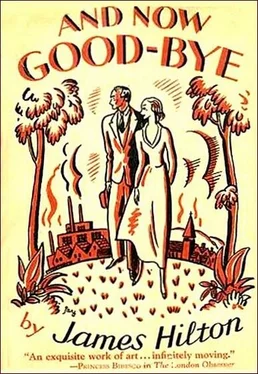Howat was happy enough. He had come gradually to like as well as to respect Mr. Coverdale, and the old man, in his turn, had begun to feel for the boy an affection all the deeper because he had always wished for a son of his own. The family did nit know, and would perhaps hardly have credited, the terms upon which the two worked together at the timber-yard. Howat’s job had developed into a sort of informal private secretaryship, but there was not always much work of that sort to be done, and sometimes in the afternoons they would sit together in the little matchboard office amidst the smells of glue and sawdust and hold most solemn discussions. There was something very impressive about the old man; with his white bushy hair and bright almost jet- black eyes, he looked rather like Howat’s conception of an Old Testament patriarch. Howat soon perceived that the saw-mill and timber-yard were utterly secondary considerations with him; he ran them efficiently and conscientiously ’enough, but his real interest in life, and more and more as he was growing older, was religion. There was no doubting the sincerity of that religion, or that it was vastly more than a one-day-a-week affair. It steeped Coverdale’s whole life, not precisely in happiness, but in a sort of wild and stupendous triumph. Once when Howat heard a certain theme of Beethoven’s he thought instantly that it reminded him of Coverdale’s attitude.
Howat was always very sensitive and impressionable, and the fervent booming eloquence of the old man, both publicly and in private, easily stirred him emotionally. Coverdale had, indeed, a noble though undisciplined command over English; he could paint the joys of heaven and the pains of hell in language which filled Howat’s mind like great chords of music. The girls were all apparently unmoved by it, but often when Howat raised his head in chapel at the close of one of Coverdale’s long prayers, his eyes were dim with tears. He always felt that the prayers had been framed to apply to himself personally, and though he knew that this was absurd, he could not get the idea out of his mind.
One day a curious incident took place at the saw-mill. A workman had been censured by Mr. Coverdale for using bad language; Coverdale had had him up in the office and, in Howat’s hearing, had delivered a long and impressive harangue on the sinfulness of such conduct and on the possibility that Providence might inflict sudden and condign punishment on anyone guilty of it. A few minutes after the man had returned to his work loud screams sounded from the saw-mill; Howat and Coverdale both rushed down, and found that the offending machinist had had all the fingers of one hand taken off by the circular saw. After he had been removed to hospital, Howat fainted; the sight had been too much for him; and when he recovered he saw Coverdale kneeling by his side with a fiercely triumphant light in his eyes. He was convinced that Providence had spoken through the medium of the ghastly affair, and into Howat’s ears he poured there and then a terrific exposition of his own religious feelings and convictions. It was then that he told Howat that he prayed every night that the boy might ‘get’ religion as he had ‘got’ it, and might come to realise that there were more serious things in life than experimenting with little bits of tunes. Howat was touched and moved by the revelation that Coverdale thought so much about him and his future; and when the old man suggested that they should both pray aloud and in turn for the quick recovery of the injured workman, Howat, who was in a rather dazed mood, agreed. After a little preliminary nervousness when it came to his turn, he found that the words sprang to his lips quite fluently; he had listened to so much of Coverdale’s eloquence that mere imitativeness, if nothing else, could have carried him along. He found the experience rather exhilarating in a way; he enjoyed the consciousness of control over language; it was rather like the first zestful sensation of riding a bicycle. When he had finished Coverdale signified a grave approval; he was convinced, from that moment, that the boy was destined to be the means of saving innumerable souls.
Gradually, after that, and to a degree that Howat hardly realised, Coverdale’s influence over him deepened and became more dominating. The day came when Coverdale at last persuaded him to use his ’gift of tongues’ in public; he was very reluctant, but at last consented. It was a meeting held in the chapel schoolroom to raise funds for a new organ, and Howat, as organist, felt that there was some small excuse if he chose to say a few words on such an occasion. When he first stood up before that audience of forty odd people he was so nervous he could scarcely enunciate a word; his mouth began to twitch; and Lavinia’s eyes, staring at him from the front row, seemed to transfix him into stupor. He did, however, manage at last to begin, and after a few halting sentences found himself escaping into some extraordinary upper air in which words came pouring on him, copiously and without effort. He spoke for ten minutes, and those ten minutes established his fame far more thoroughly than any of his tunes had done. The family, in particular, were thrilled to the point of hero-worship. They had never been able to comprehend the significance of his musical activities, but his eloquence, modelled on that of Mr. Coverdale, but delivered with such a refreshingly youthful and pleasant-sounding voice, seemed to them convincingly successful.
He was nineteen then, and a youth for whom in that little world of Kimbourne, the future seemed large with promise. There was a world, however, beyond Kimbourne, which he still privately inhabited, and even this world, to some extent, gave him encouragement. He bought himself a violin, and learned to play it moderately well; but it was not so much his intention to become a skilled executant as to master the technical possibilities of stringed instruments. In that twentieth year he began to compose pieces for violin and piano; he even tried his hand at trios and quartets, and a string quartet of his actually won a ten-pound prize at a London musical festival, and was performed once at a special concert. Kimbourne knew little of this, and the family, though they knew, were much less interested in it than in the verbal eloquence with which Howat could occasionally be persuaded to deluge them. For his successful first speech had naturally led to others, even to short addresses in the chapel; he found that he rather liked talking in public when once he got over the initial nervousness that always assailed him; it was the same sort of enjoyment that he derived from improvising on the organ or on the schoolroom piano to which he now had permanent access—all his speeches were, in a sense, improvisations on a theme. Success did not make him conceited, though he was human enough to enjoy sometimes the fulsome flatteries that were showered upon him; he was still very shy and rather unapproachable by strangers. But it was true, in a literal way, that he liked the sound of his own voice; and no wonder, for that voice, both in talking and singing, was a vibrant baritone which perfectly matched a face of singularly tender and thoughtful handsomeness. All the Coverdale girls were now more or less in love with him, even including Mary, and he was still entirely unaware of it. Even the prettiest girls in the village (which the Coverdale girls certainly were not) found him disappointingly aloof and unsusceptible.
At last he made a further surrender to Cover-dale’s fervent pleading, and conducted a whole Sunday service—prayers, sermon, hymns, organ voluntaries, everything. As a one-man show it would in any case have been a noteworthy exhibition of versatility; but it was actually much more than that—so much more that it is possibly remembered to this day by some of the older inhabitants of Kimbourne. It happened that a massacre of workmen had just taken place in St. Petersburg, and Howat’s sermon was a spirited attack on autocracy which brought the small assembly dangerously near to cheering point; Coverdale felt that there should have been more religion in it, but as a strong Liberal in politics, he could not but approve of the boy’s sentiments. One effect of this rather astonishing outburst was to attract the attention of the local Liberal party organisers, and during the general election campaign a year later Howat made many speeches throughout the constituencies. By that time he had become a recognised local preacher, and the chapels in which he preached were always crowded with folk who came, many of them, to savour the novelty of a youth of twenty who could, as was said, ’let go as well as all the rest of them put together’.
Читать дальше











